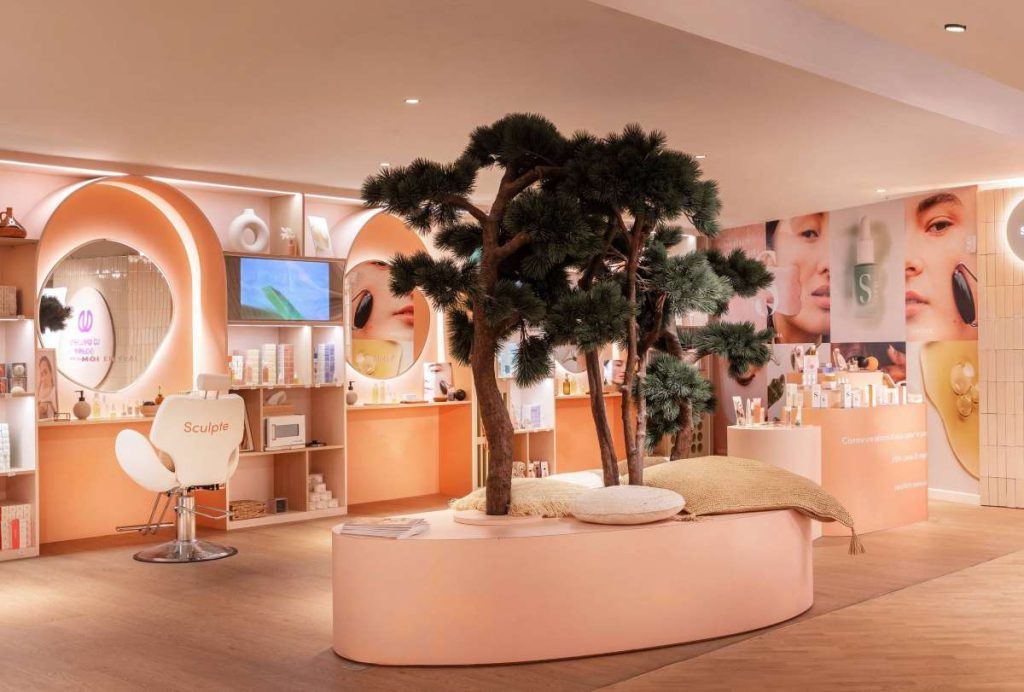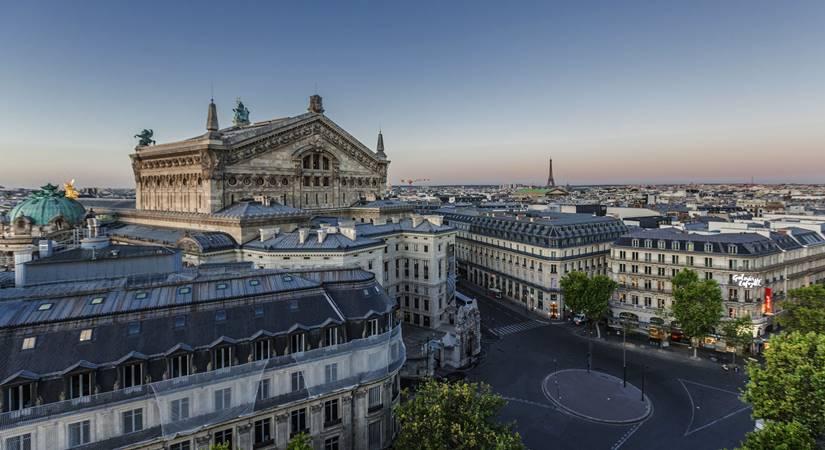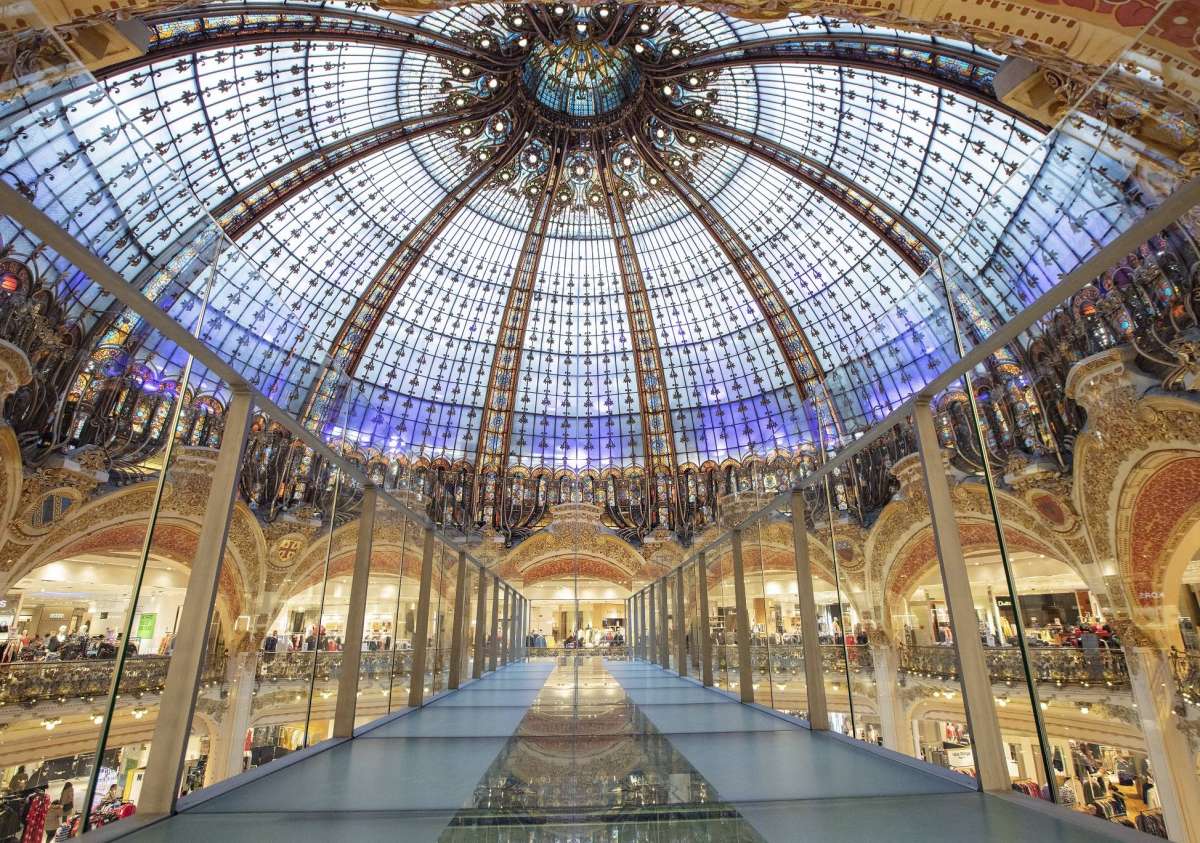Galeries Lafayette, the iconic department store synonymous with luxury, innovation, and unparalleled shopping experiences, celebrates a remarkable journey that spans over a century. From its humble beginnings as a small haberdashery in 1893 to becoming a global symbol of fashion and elegance, Galeries Lafayette has continually evolved, embracing audacity and modernity at every turn.
A Promising Start:
• In 1893, Alsatian cousins Théophile Bader and Alphonse Kahn embarked on a daring venture, establishing a small haberdashery at the corner of rue La Fayette and rue de la Chaussée d’Antin. This marked the birth of “Aux Galeries Lafayette,” strategically located near the Opera and grand boulevards, attracting Parisians and provincials alike.
• By 1903, Galeries Lafayette expanded its footprint by acquiring surrounding buildings, setting the stage for a unique retail empire. Théophile Bader’s visionary “stone strategy” led to the creation of a vast real estate area, setting the foundation for the flagship store on Boulevard Haussmann.
The Birth of a “Luxury Bazaar”:
• Under the leadership of architect Ferdinand Chanut, Galeries Lafayette unveiled its flagship store in October 1912. Théophile Bader envisioned a “luxury bazaar” where opulence and abundance would captivate customers. The iconic dome, reaching a height of 43 meters, became the symbol of Galeries Lafayette, adorned with stained glass windows in a neo-Byzantine style by master glassmaker Jacques Gruber.
• The store’s sales area doubled, introducing non-retail spaces such as a tea room, reading room, and smoking room. Galeries Lafayette transformed shopping into a leisure activity, with the terrace offering a panoramic view of Paris, hosting exceptional events like Jules Védrines’ historic landing in 1919.

Fashion Revolution and Democratization:
• Galeries Lafayette’s commitment to fashion and novelty was evident from its inception. Théophile Bader pioneered making popular styles accessible to all budgets, establishing production units for clothing sold exclusively under the Galeries Lafayette brand. The democratization of fashion flourished, attracting a diverse clientele, from upper-class women to sewing workers.
• The store continued to diversify its offerings, adding men’s clothing, furniture, toys, and tableware. In 1922, the applied arts workshops “La Maîtrise” were introduced, fostering collaboration with artists such as Maurice Dufrêne, Jean, and Jacques Adnet.
Growth and Modernization:
• Despite challenges like the economic crisis of 1929 and Aryanization during 1941-1944, Galeries Lafayette persevered. Post-World War II, the store underwent modernization, introducing Europe’s highest escalator in 1951 and raising the building by two floors in 1959.
• The 1960s witnessed the rise of young designers in ready-to-wear, with Galeries Lafayette providing a platform for talents like Sonia Rykiel, Daniel Hechter, Pierre Cardin, and more.
Lafayette 1, 2, 3:
• In 1969, Galeries Lafayette expanded across Rue de Mogador, creating Lafayette 1 initially reserved for young people. Lafayette 2 and Lafayette Gourmet followed, establishing Galeries Lafayette as the first “urban center of facilities,” incorporating shops, services, parking, and direct metro access.
• The 1980s marked the creation of the “Fashion Festival” and collaborations with renowned artistic directors like Karl Lagerfeld, Robert Wilson, and Jérôme Savary.

Embracing the Future:
• In 2001, Galeries Lafayette elevated its brand, collaborating with Jean-Paul Goude for communication. The store diversified further, incorporating Lafayette Maison after acquiring Marks and Spencer in 2004.
• Today, Galeries Lafayette stands not just as a retail giant but as a cultural institution deeply intertwined with the world of fashion and contemporary creation. The Heritage department, established in 2008, preserves the Group’s architectural heritage and historical archives, ensuring the company’s legacy endures for future generations.
ALSO READ-Italian Elegance Meets Dubai Skyline

Leave a Reply